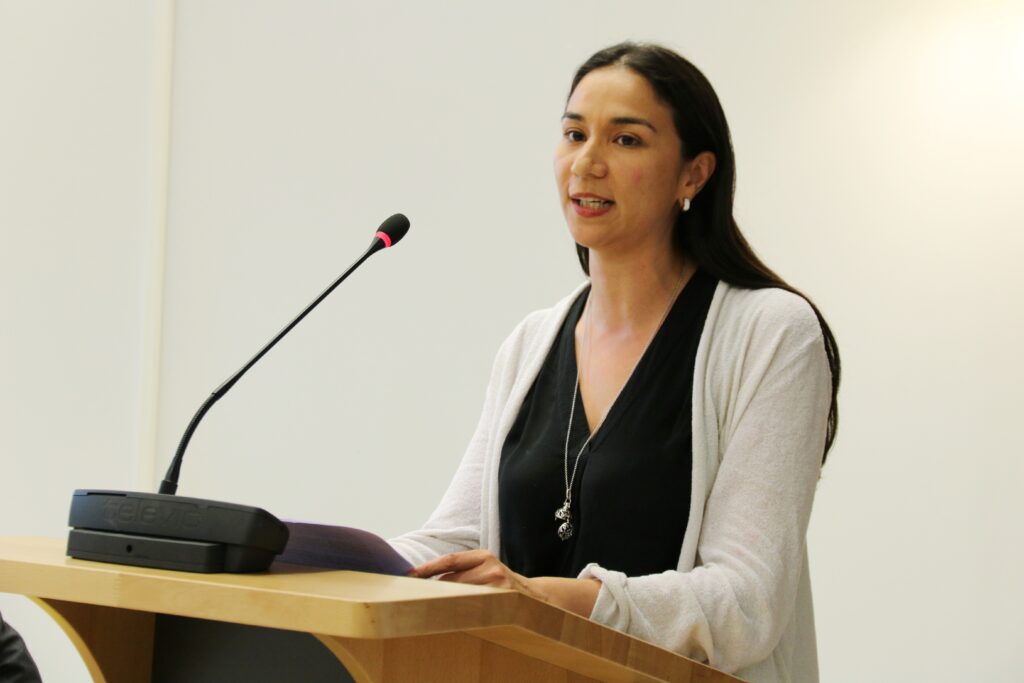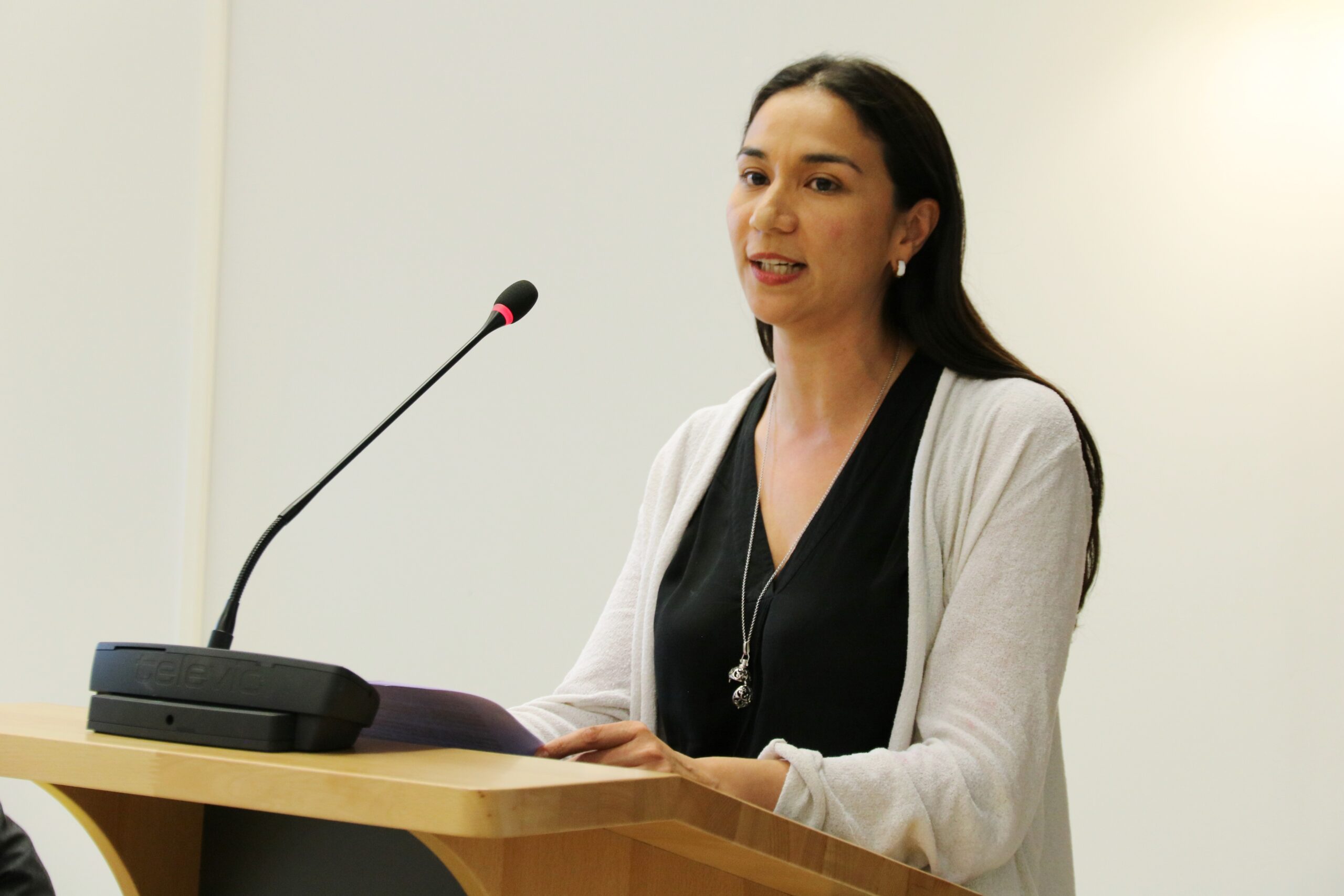
Almost three months have passed since the world has been faced with the COVID-19 pandemic. A lot has happened in such a short time, which has been difficult to assess or even qualify the impact in people’s lives and in our future as a society.
I would like to highlight three critical points on the impact of COVID-19 in our communities to understand the need to address children’s spiritual well-being during this period and how best to frame our response.
Human Rights
The world as we know it today is changing. The COVID-19 pandemic has forced us to limit our physical contact with others, has restricted many fundamental freedoms like freedom of expression, in certain countries; freedom of movement, and affected the fulfilment of many rights, particularly for the most vulnerable, including children: the right to education, right to health, right to work for many independent workers, or the right to be protected from harm and violence, as we see the rise in domestic violence, just to name a few. The COVID-19 has also made more evident the social inequities in our world as the most vulnerable get more negatively impacted. Today more than ever we realize the importance of our interconnectedness as we face the rupture of a world that has privileged individualism and economic growth, and start seeing the need for social safety nets for the most vulnerable. This is the changing world we are seeing today and that our children are being exposed to as they experience higher level of stress, anxiety and uncertainty about the future from their parents and caregivers but also by themselves. We are now raising children in constraint environments filled with fear, and even if measures are loosened up in the near future, it is foreseen that for some time physical distancing practices will need to continue.
In a recent study on the Impact of COVID-19 on children, conducted by World Vision International with 101 children, 71 percent of the children expressed that they felt isolated and lonely due to school closures. 91 per cent of respondents acknowledged that they were facing emotional distress and troubling feelings, including anxiety, anger, and worry due to the uncertainty of how long this crisis will last and dealing with isolation.
How do we support then children’s spiritual well-being in this changing world when children’s spaces that further their full development are affected?
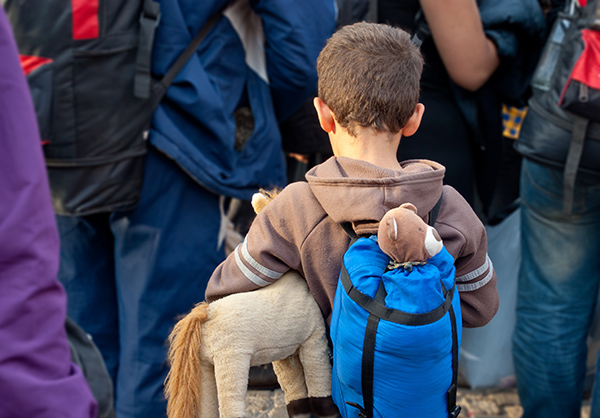
Xenophobia and discrimination
The COVID-19 pandemic has exacerbated xenophobia, hate and exclusion, as mentioned by the UN Special Rapporteur on Minority Issues, in recent interventions[1]. This includes physical attacks against Chinese and other Asians, hate speech blaming Roma and Hispanics for the spread of the virus, and calls by some political leaders for migrants to be denied access to medical services. In some countries, we are seeing a rise in Islamophobia, Anti-Semitic hate speech has risen alarmingly, and across social media we are also seeing a rise in hate speech against minority groups.
Children and young people have now more access to the Internet with more time spent on their own, and without proper spaces within the school or family settings to discuss and critically think of the veracity of the information they get access to. This continued display of discriminatory rhetoric affects children and young people’s view of the world, their relations with others and create negative narratives about the ‘other’ that might become ‘normalized’ in societies, as nationalistic groups gain more space and exacerbate their ideologies against minorities.
How do we support then children’s spiritual well-being when their identities, sense of belonging and connections with others are being affected?
Poverty, domestic violence and the environment
The World Bank estimates suggest that COVID-19 will push 49 million people into extreme poverty in 2020[2]. We know that poverty exacerbates violence against children as it deprives them from basic services, access to education, and impacts family well-being. The interdependence between human actions against the environment and the exposure to novel viruses, such as the COVID-19, has now become more evident than before, placing greater importance to the need to protect mother earth and develop more sustainable practices in our behaviours. Children’s future and spiritual well-being is compromised when we fail to address the environmental crisis today, negatively affecting the possibility for children to connect with nature and violating their right to a safe future.
An often ignored fact is how poverty can affect children’s agency and capacity and opportunities to participate in society and in decisions that affect them. Children’s empowerment is closely related to their spiritual development as children are equipped to positively respond to the ethical challenges in their societies and see themselves not as isolated human beings but as agents of change able to influence the world around them. With half of all students of the world currently out of the classroom without access to a computer, and more than 40 per cent of children with no internet access at home[3], we see increasing disparities in access to education and learning, compromising children’s capacity to develop their agency fully.
The United Nations secretary-general has reported a global surge in domestic-based violence linked to COVID-19, and calls to helplines in some countries have reportedly doubled[4]. Spending more time on virtual platforms can leave children vulnerable to online sexual exploitation and grooming, as predators look to exploit the COVID-19 pandemic.
So what kind of response is needed to support children’s spiritual well-being in a world affected by the COVID-19 pandemic that faces disruption in our social fabric, in protection of fundamental freedoms, increase levels of poverty and domestic violence, that challenges practices that attempt against our environment, and that lacks global leadership to respond with a common approach to a problem that affects us all? How are children and young people being prepared to respond and help co-create and transform a world that needs healing?
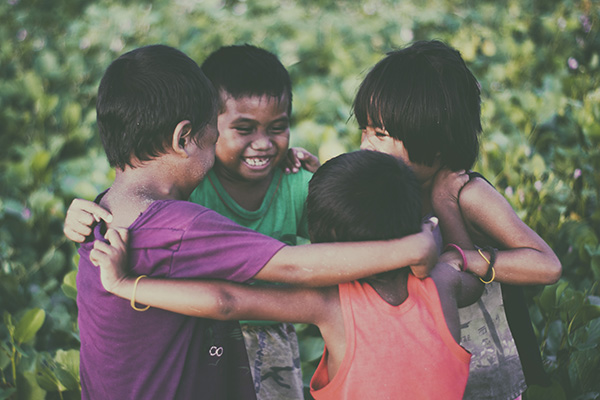
Based on these critical reflections, Arigatou International has developed a response campaign titled Faith In Action For Children, to protect, support and empower children during the COVID-19 Pandemic.
Our response to the COVID-19 Pandemic is focused on three axes:
- Mobilizing religious communities and child protection experts to protect children from violence and support their spiritual well-being
- Promoting approaches for parents, caregivers and teachers to foster children’s spiritual safety and well-being during and after the lockdown
- Raising the voices of children and young people to foster ethical reflections on the impact of COVID-19 on the world today and empower them to contribute to the transformation of our world.
Arigatou International through its Ethics Education Initiative has developed expertise for more than 15 years on how to nurture values and spirituality in children that can help them learn to live together with others. We have a program called Learning to Live Together, which was launched in 2008 and since then has reached over 410 thousand children from diverse ethnic, social, cultural and religious backgrounds in more than 40 countries around the world.
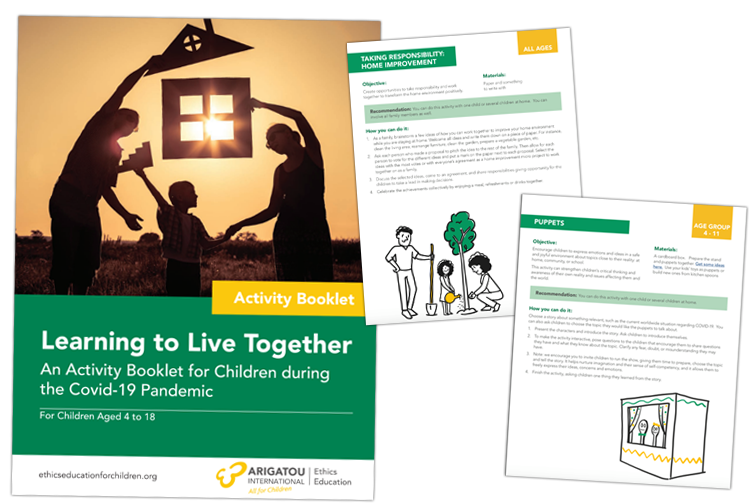
As a response to the pandemic we have adapted the activities of this manual for families to work with children 4 to 18 years old to strengthen family bonds, nurture children’s spirituality, and provide learning opportunities for them to reflect on ethical challenges, develop their imagination, critical thinking, and think of concrete ways they can still connect with one another, while still practicing safe physical distancing.
We see today some schools providing online learning with a focus on following the curriculum and with little emphasis on socio-emotional learning or ethical reflections about the situation today. We also see that most of the materials available for parents and caregivers are focused on how to entertain their children or keep them occupy, but very little on how to nurture their spirituality and ethical reflections.
The 32 activities proposed help children to reflect about the current situation, their relations with others, about themselves, injustices, their rights, as well as focus on creating spaces for family members to connect with one another, share feelings and support children to feel rooted in the world, particularly in a moment where we all feel uprooted from our routines, lives, social experiences and connectors.
The activities can help children find purpose, make sense of the new reality, become aware of the sacredness of life in connection with others, and can help them connect with others.
We have also developed simple messages for families who have no access to computers or do not have time to read through a booklet for them
- Nurturing spaces for gratitude at home
- Creating time to do things together: playing, reading stories, cooking, gardening, eating (activities that help building bonds)
- Helping children connect via phone or the Internet with family and friends – to keep them in connection with others
- Find joy and positivity in the little things in life
- Create spaces for meditation, reflection and praying together
- Find ways to do something for the community, help someone in need,
- Talk and share about feelings so there is mutual support and better communication – allow yourself to be vulnerable
- Talk about the virus
- Be a role model
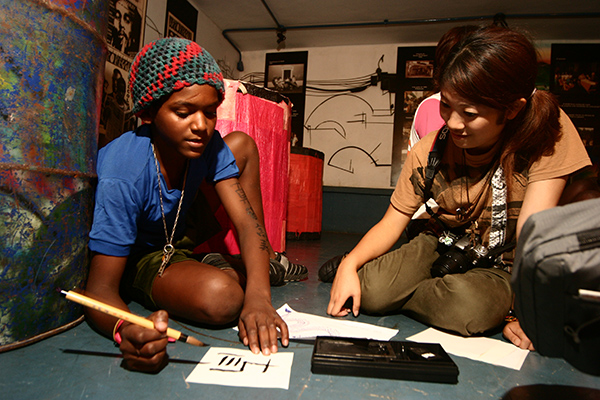
The environment to nurture children’s spirituality is very important, as spirituality cannot be nurtured in an environment of violence. Therefore, while these activities and suggestions help parents and caregivers to nurture children’s innate spirituality, it can also help self-examining how we are or not creating toxic environments for our children, and challenge violent ways of raising children.
A second concrete response to nurture children’s spirituality and ethical reflections is through their empowerment. A very important way to protect children is to empower them. Very often we think that the protection of children is a vertical action that we do towards children, but we forget that children are individuals in their own right, and that their empowerment is a sine qua non for their protection, as they become aware of their rights and get equipped to speak up and respond in positive ways.
An empowered child, a child that can think critically, a child that can speak up his/her views, a child that is aware of the social reality and understands the consequences of his/her actions on others, a child that practices empathy and solidarity with others, and is aware of the interconnectedness of life, and is equipped to respond, is a child whose spirituality is nurtured and affirmed.
Through the campaign, we have been collecting the voices of children and youth. You can see several videos on our website. We have a group of 9 children who are spearheading a campaign to reach out to more children and youth through messages about their role today and providing ethical reflections on the challenges they are experiencing, how they see their future and how they wish this future to be. They will be providing recommendations to policy makers and religious leaders on the need to transform the world, a world where they are partners and co-creators.
It is important to underpin that we are not advocating solely for children’s spiritual wellbeing during these times. We are advocating for a holistic approach to respond to children’s safety and empowerment that can enhance children’s well-being, including the spiritual one. The ecosystem of a child is made up of several layers: the family, school, religious communities, laws and policies, as well as the larger community.
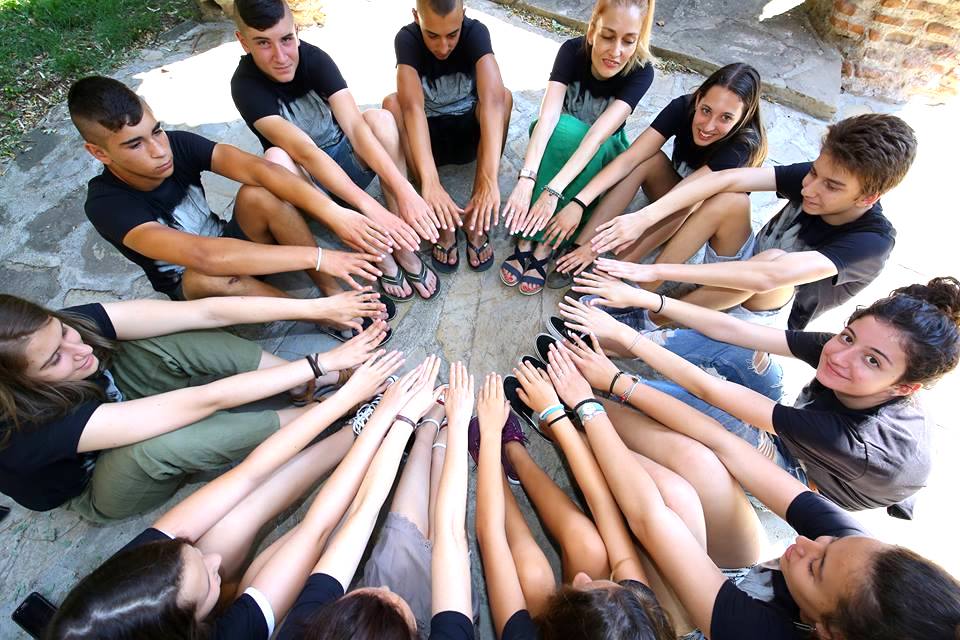
We are also mobilizing the voices of religious leaders and child protection experts to raise awareness about the impact of COVID-19 on children, but also building on the leadership of religious leaders to reach out to their communities to influence behaviours that might affect children’s well-being and to nurture practices that can help the spiritual development of children in these troubling times.
The leadership of religious authorities is critical for many people and communities around the world. In a time when people turn to their faith for strength, religious leaders should be the first ones to provide counselling, help spiritual healing and challenge all types of violence.
We developed a booklet with 9 recommendations for religious leaders and communities:
- Raise Awareness about Increasing Levels of Violence Against Children
- Support Children’s Awareness of COVID-19 and Coping with Physical Distancing
- Help Create Healthy, Nurturing and Safe Environments for Children during the Confinement, including Online Safety
- Strengthen Faith and Interfaith Collaborations During Confinement
- Support Parents to Nurture Ethical Values and Spirituality in Children within the Family and in Places of Shelter
- Empower Children to Participate and Contribute to Community Life
- Connect with Your Local and National Government
- Build Solidarity to Respond to the Needs of the Most Vulnerable Children
- Support and pray for medical professionals, caregivers, and researchers
We have seen how faith-based organizations at the local level, but also how religious communities I would like to end with one powerful example. Shanti Ashram in India has been developing a series of responses that show the different levels on how faith communities can respond:
- Calling for interfaith collaboration and action for the most vulnerable
- Challenging narratives of fear
- Providing financial support to the most vulnerable families – cash transfer
- Creating innovative approaches for children to raise their voices
- Creating awareness about social distancing, as well as educating people about hygiene.
Conclusions
Children’s spiritual nurturing does not happen in a vacuum nor it is a matter of being in silent or isolated from the world. It requires to be in connection with oneself but very much in connection with others and the society. It requires being able to serve others, and nurture the social fabric that connects us all. The several implications of the COVID-19 in our lives, have an impact on how children see and are in the world, and it is our ethical responsibility to make sure that during and after this period, children are not only protected, but also empowered to positively contribute to this changing world.
For more information about the Faith in Action for Children Global Campaign and the materials mentioned in this article, visit our COVID-19 response page: https://arigatouinternational.org/en/response-to-covid19
By Ms. Maria Lucia Uribe
Director, Arigatou International Geneva
[1] COVID-19 fears should not be exploited to attack and exclude minorities – UN expert.
https://www.ohchr.org/EN/NewsEvents/Pages/DisplayNews.aspx?NewsID=25757&LangID=E Last Access 3 May 2020.
[2] The impact of COVID-19 (Coronavirus) on global poverty: Why Sub-Saharan Africa might be the region hardest hit. https://blogs.worldbank.org/opendata/impact-covid-19-coronavirus-global-poverty-why-sub-saharan-africa-might-be-region-hardest?cid=EX Last access: 3 May 2020.
[3] https://news.un.org/en/story/2020/04/1062232
[4] UN News – Startling disparities in digital learning emerge as COVID-19 spreads: UN education agency. https://news.un.org/en/story/2020/04/1061052 Last access 3 May 2020
